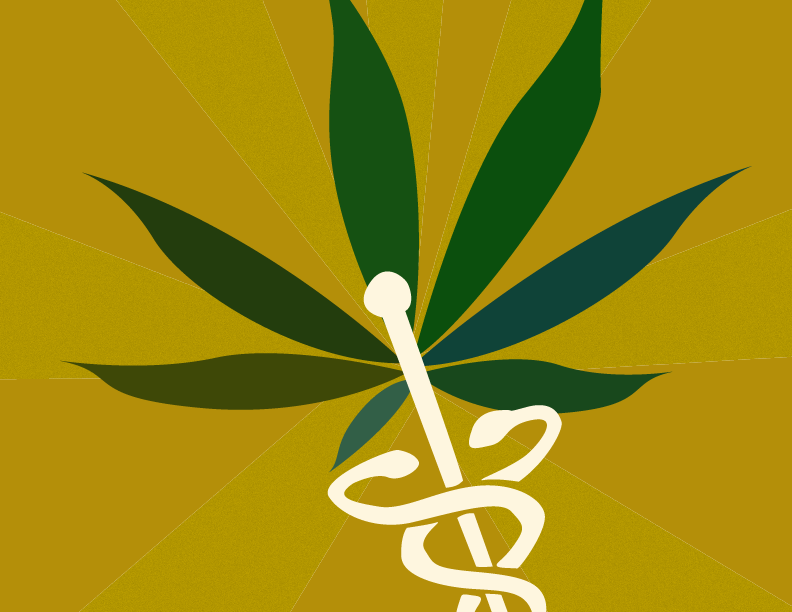The University of Utah has marked the beginning of a new phase in the exploration of medical cannabis in Utah with the establishment of the Center for Medical Cannabis Research, which aims to support research to better understand the benefits and risks of the drug.
The CMCR was formed after the legislature and governor approved a bill to fund the center. The bill was proposed by Rep. Jennifer Dailey-Provost and Sen. Evan Vickers during the 2023 legislative session.
CMCR’s Mission
“The mission of the CMCR is to promote methodologically sound research, evaluating the safety and efficacy of cannabis and cannabis products used with therapeutic intent,” said Valerie Ahanonu, senior manager of the CMCR.
She added the CMCR will also help cultivate research opportunities for experts at the U, other academic institutions, external collaborators and community stakeholders.
“We aim to foster a research-based approach that impacts public health, and educate stakeholders on the therapeutic benefits and safe use of medical cannabis and cannabinoid products,” Ahanonu said. “There is a vast need for us to hone in on medical cannabis research as much as we have for other plant medicines.”
Utah began its path to legalizing the use of medical cannabis in 2018, but the first medical cannabis pharmacy in the state didn’t open until 2020. As of April 2023, more than 66,000 Utahns hold an active medical cannabis card, according to the latest numbers from the Utah Department of Health and Human Services.
Jerry Cochran, interim director for CMCR, said there’s lots of research out there on medical cannabis but it “varies a lot in terms of its quality and rigor,” so the public needs more “evidence-based research” around what health conditions medical cannabis can help with and how.
“There are some conditions for which there’s pretty good evidence [cannabis helps],” Cochran said. “But there’s a lot of conditions for which there’s not a lot of evidence [it helps].”
In Utah, the qualifying conditions to get a medical card under the Utah Medical Cannabis Act include epilepsy, cancer, Alzheimer’s disease, Crohn’s disease, autism and chronic pain, among others.
The center’s first step in supporting research will be providing pilot grants to help scientists start projects on medical cannabis.
“The CMCR will promote research ranging from chemical characterization of the active components of cannabis through to late-stage clinical trials,” the press release announcing the center read.
Expanding Education
A key focus of the CMCR is to improve education surrounding medical cannabis to empower both patients and providers with evidence-based insights, according to the press release.
The center is currently partnering with the Genetic Science Learning Center at the U to create educational materials for medical cannabis including video content and one-page information sheets, Ahanonu said.
“[These will] allow for both patients and providers to have quick summaries of how to use their medicine, but also, for which conditions and in what ways and how to have those conversations,” Ahanonu said.
“The CMCR also plans to work with the Spencer S. Eccles Health Sciences Library to produce an accessible database of the most rigorous and up-to-date information in the field,” the press release read.
In this first year for the CMCR, Ahanonu added that another one of their goals has been to find and create a community of faculty that are interested in supporting this educational component and the center’s mission in general. The CMCR is holding a symposium to gather local researchers interested in medical cannabis research on Jan. 30, 2024, from 10 a.m. to 4 p.m., at the S.J. Quinney College of Law.
“The great thing about it is that it’s not just for the University of Utah,” Ahanonu said. “We’re the home for the center, but our hope is to create a collaborative kind of community that’s across all institutions within Utah that allows us to distribute those resources to researchers across the state.”
Barriers to Medical Cannabis Research
Historically, a significant barrier to cannabis research is the “limited supply of research-grade medical cannabis, especially from sites that are approved by the DEA,” the CMCR press release read.
Another of the center’s primary goals is “eliminat[ing] this bottleneck” by supporting the establishment of a DEA-approved cannabis grow site for research, which would allow for a more robust study of the complex plant.
Until 2020, the U.S. relied on a single grower to produce cannabis for domestic research purposes — the National Center for the Development of Natural Products at the University of Mississippi. The cannabis from there, funded by the National Institute on Drug Abuse, has also been criticized by researchers for being low potency, lacking diversity and “too dissimilar to commercially available cannabis from state-legal dispensaries, and overly cumbersome to acquire,” according to law firm Arnold & Porter.
“By the time a lot of the researchers were receiving it, it had degraded — being packaged in poor facilities, not really quality-controlled at a temperature rate that actually keeps those crystal[line] forms available for the types of research we want to do,” Ahanonu said.
She added that preserving these crystalline forms of cannabis compounds, known as cannabinoids, is crucial for accurate research on the potential medical benefits of cannabis.
As of March 2023, the DEA has approved seven bulk cannabis providers for research. Ahanonu said it’s a long process to establish a DEA-approved cannabis grow site for research, but she really hopes the CMCR can help establish one.
“Once that grow facility is established, I think it’ll just open up a pipeline for researchers to ask really interesting questions and answer them in a high-quality way they weren’t able to do before,” Cochran said.




